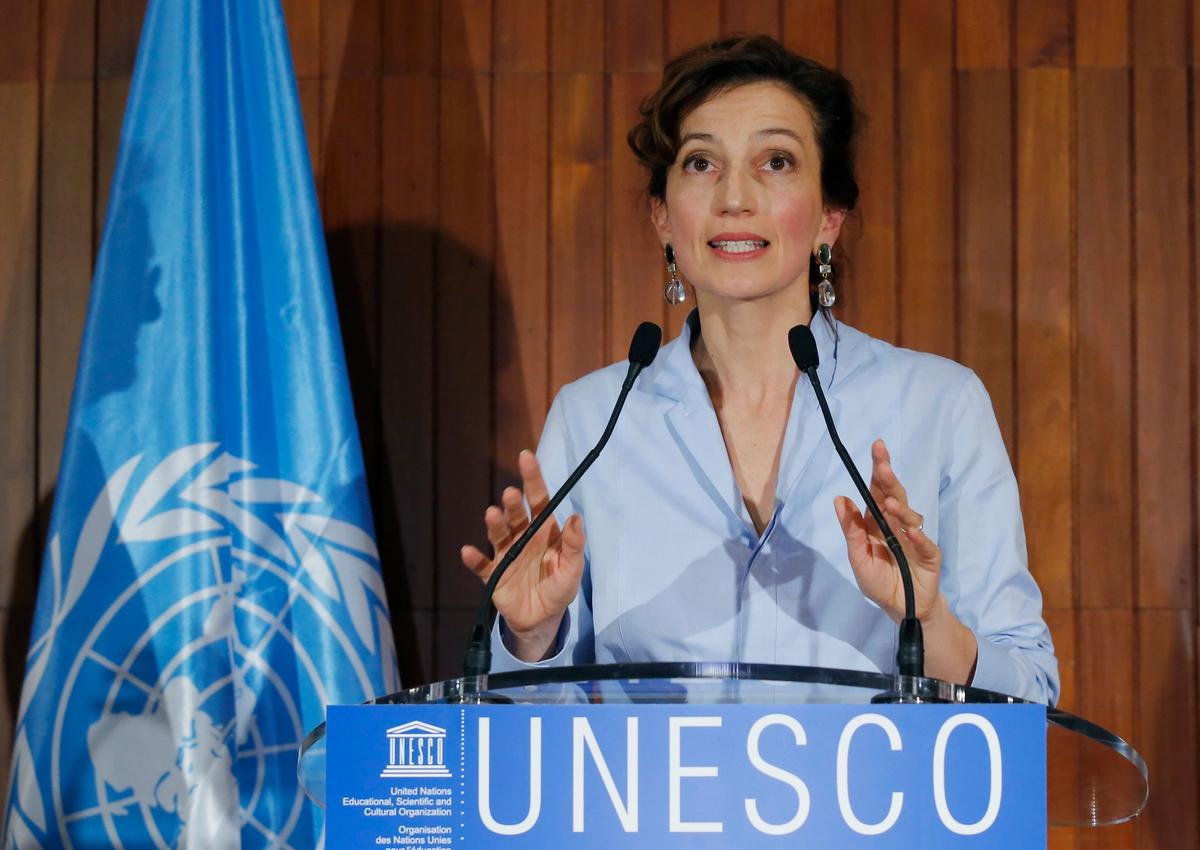In a shock election result in Paris today (13 October), the former French culture minister Audrey Azoulay was elected to become Unesco’s director-general for the next four years. Azoulay won the vote to lead the cultural agency of the UN by a short margin, 30 votes to 28, against the Qatari candidate Hamad bin Abdulaziz Al-Kawari. The result is expected to be confirmed during Unesco’s general conference when it meets in November.
The French candidate’s victory took everyone by surprise, and highlights the division between in the international organisation’s Arab member countries, which fielded no less than four candidates. Azoulay’s chances at first seemed weak. Her bid was supported by France’s former president François Hollande—against the advice of the Foreign Affairs Ministry according to diplomatic sources—and then endorsed by his successor, Emmanuel Macron. Unesco’s headquarters are based in Paris and UN tradition dictates that the host country of one of its agencies does not also run it.
Azoulay, whose father was an adviser to the Kings of Morocco, was Minister of Culture for only 15 months, after serving as Hollande’s councilor. Under her tenure, the country’s budget for cultural heritage was slashed. She said she supported the campaign launched by France to protect cultural sites in conflict zones, but this claim was disputed by many observers, including Jack Lang, France’s special envoy for the mission, who publicly said she “made things very difficult for the project”.
The director-general is chosen by Unesco’s executive board after three rounds. The outcome, determined by intense bargaining and chequebook diplomacy, is never a foregone conclusion. In 2009, the current director-general, the Bulgarian Irina Bokova, had only eight votes in the first round, before defeating the Egyptian candidate, Faruk Hosni.
Despite two and a half years of determined campaigning using his financial leverage, and an expectation that it was the Arab region’s turn to run the organisation, the Qatari candidate Al-Kawari was handicapped by his country’s diplomatic isolation. After two rounds of voting by the 58-members of the executive board, Al-Kawari led by 22 votes, but was deprived of a clear majority by Egypt’s candidate, Moushira Khattab, and the French outsider, Azoulay.
The new director-general will take charge of a struggling organisation, which has “lost 40% of its budget in adjusted value over the last decade”, according to a Western diplomat. The crisis has deepened under Bokova’s rule when the US suspended its financial contributions in 2011—more than 30% of Unesco’s annual budget—after Palestine was admitted as a full member state. On Thursday, citing concerns over “continuing anti-Israeli bias” and mounting arrears, the Trump administration informed Unesco it was quitting the organisation. Israel immediately followed suit. The US withdrawal will take effect on 31 December 2018.


